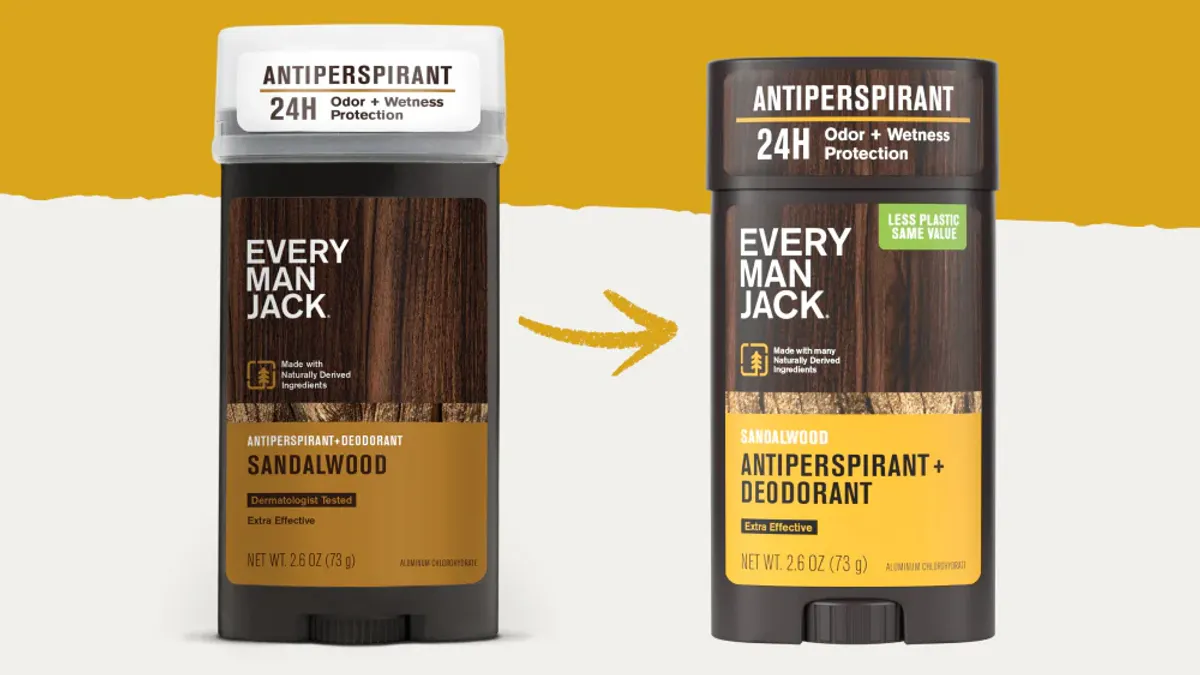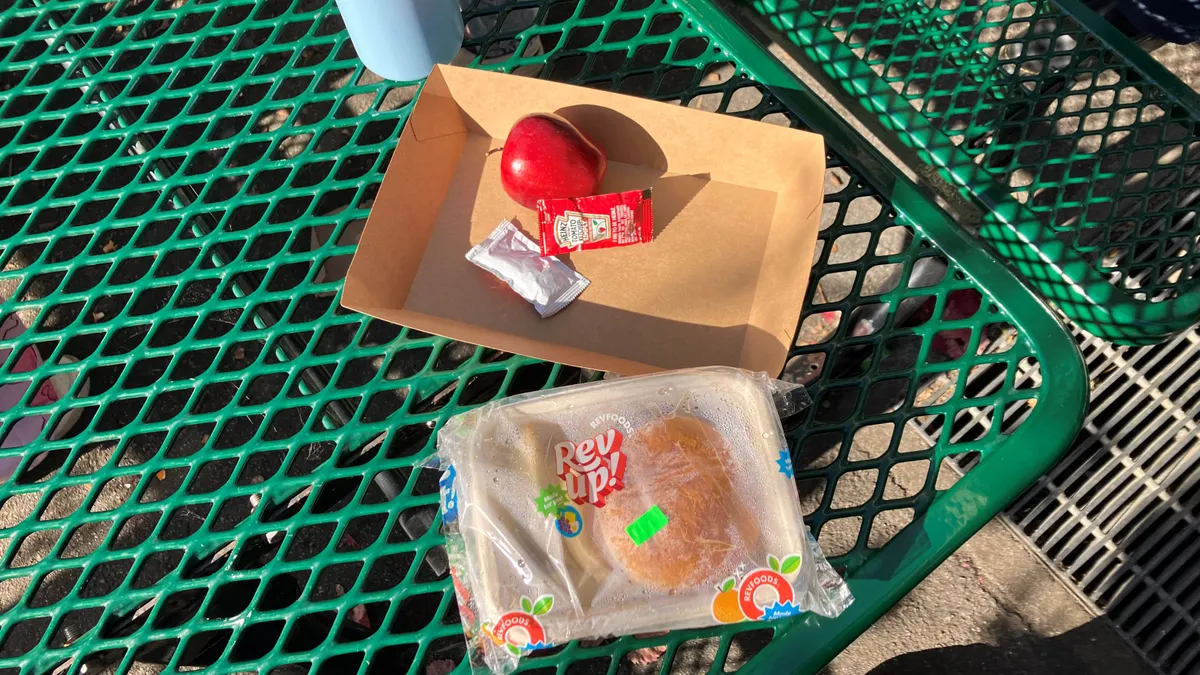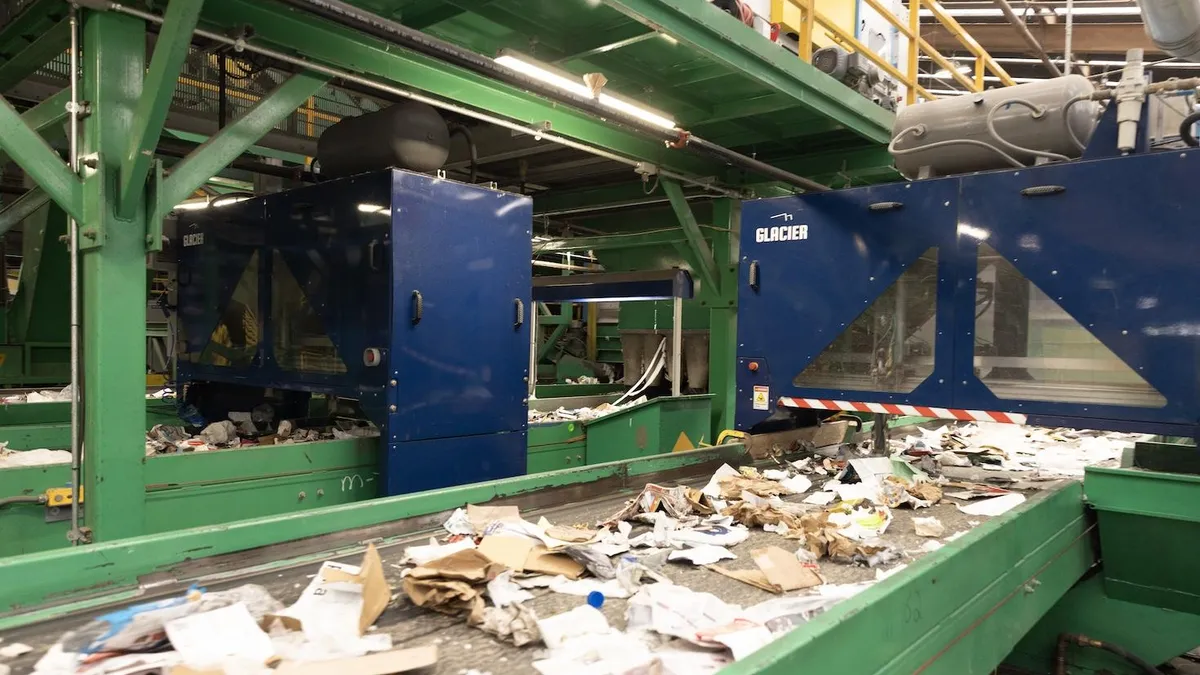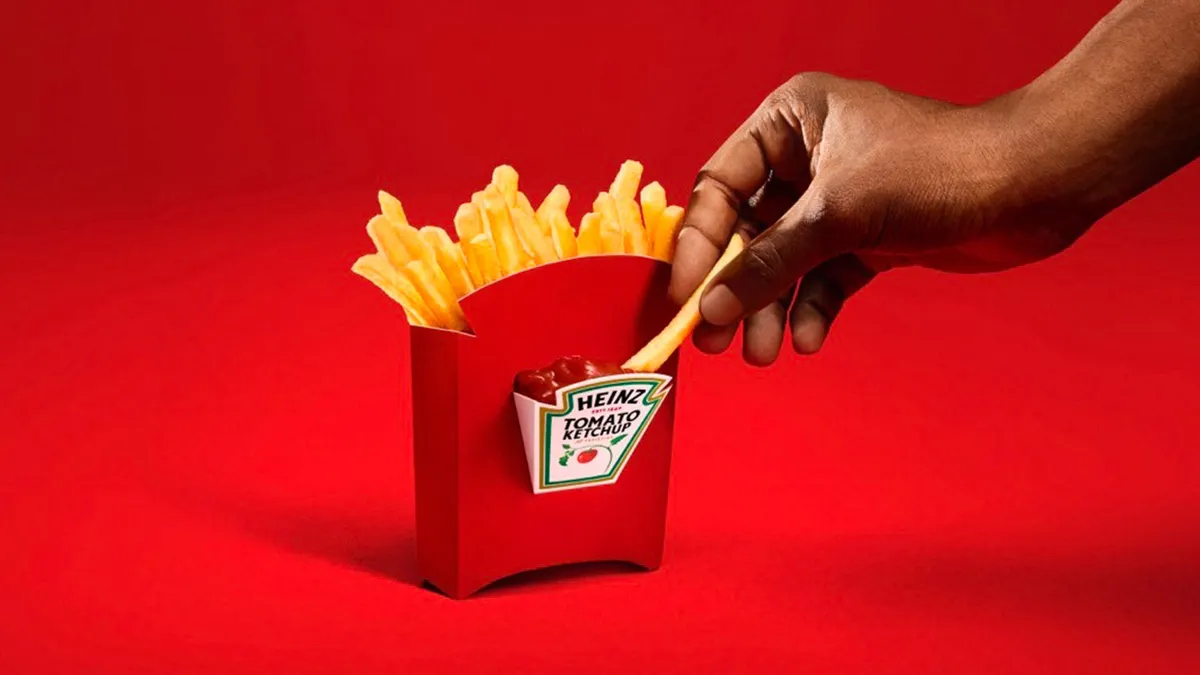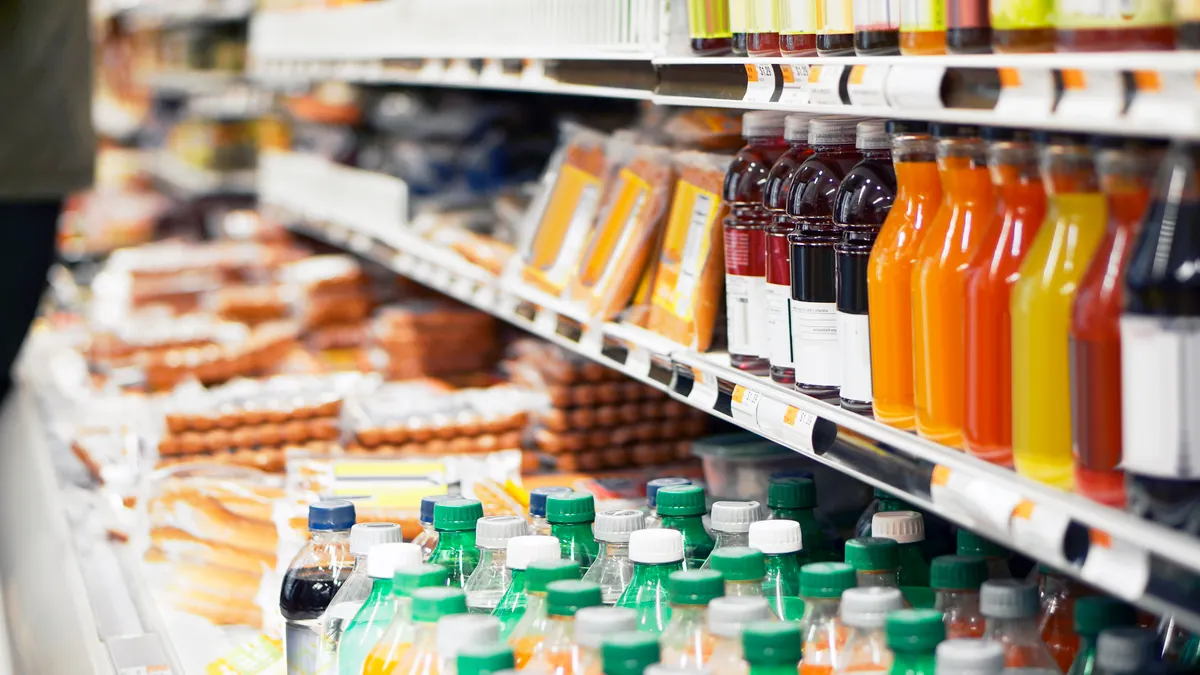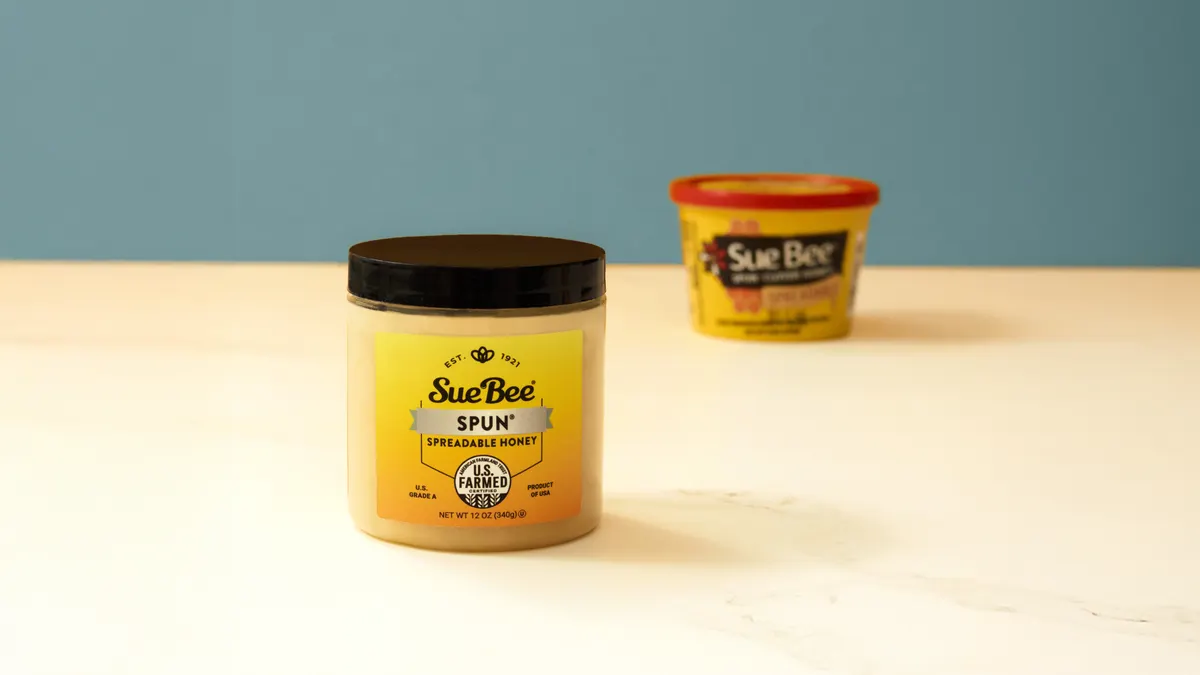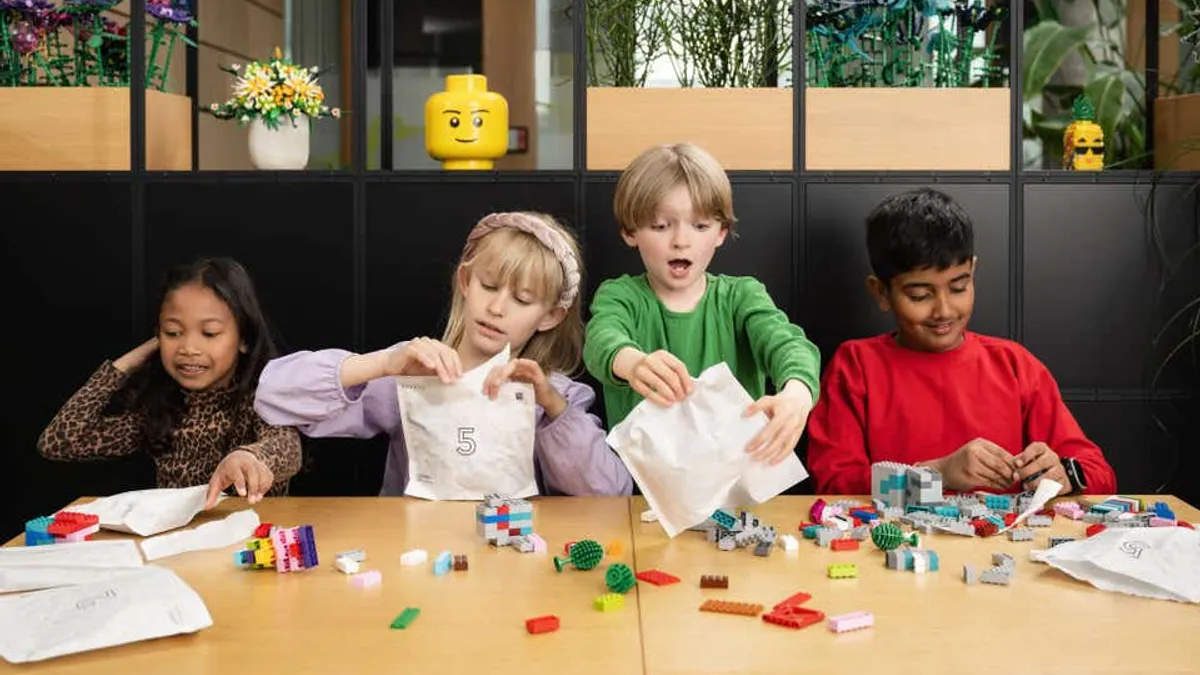Companies constantly innovate and redesign their packaging to boost performance, improve marketability and enhance sustainability. Here’s a look at five packaging launches and revamps on Packaging Dive’s radar.
Smells like PCR
Personal care brand Every Man Jack launched new deodorant packaging which it says uses less virgin plastic and can be recycled. The new packaging is made with 50% postconsumer recycled material, which will reportedly reduce the product’s use of virgin plastic by 500,000 pounds annually.
The new packaging version is monomaterial polypropylene, instead of mainly PP with some polyethylene, like the previous version. “This mix of materials made the packaging difficult to separate and recycle properly,” said Ted Wang, director of technical services at Every Man Jack, via email. The new packaging is accepted in municipal recycling programs that process PP, he said, noting consumers should check their locally accepted materials.
The monomaterial packaging will be used for all of Every Man Jack’s deodorants and antiperspirants. It’s currently rolling out to retail stores, and 80% of the units on store shelves will feature the new packaging by July, Wang said.
rPET that sparkles
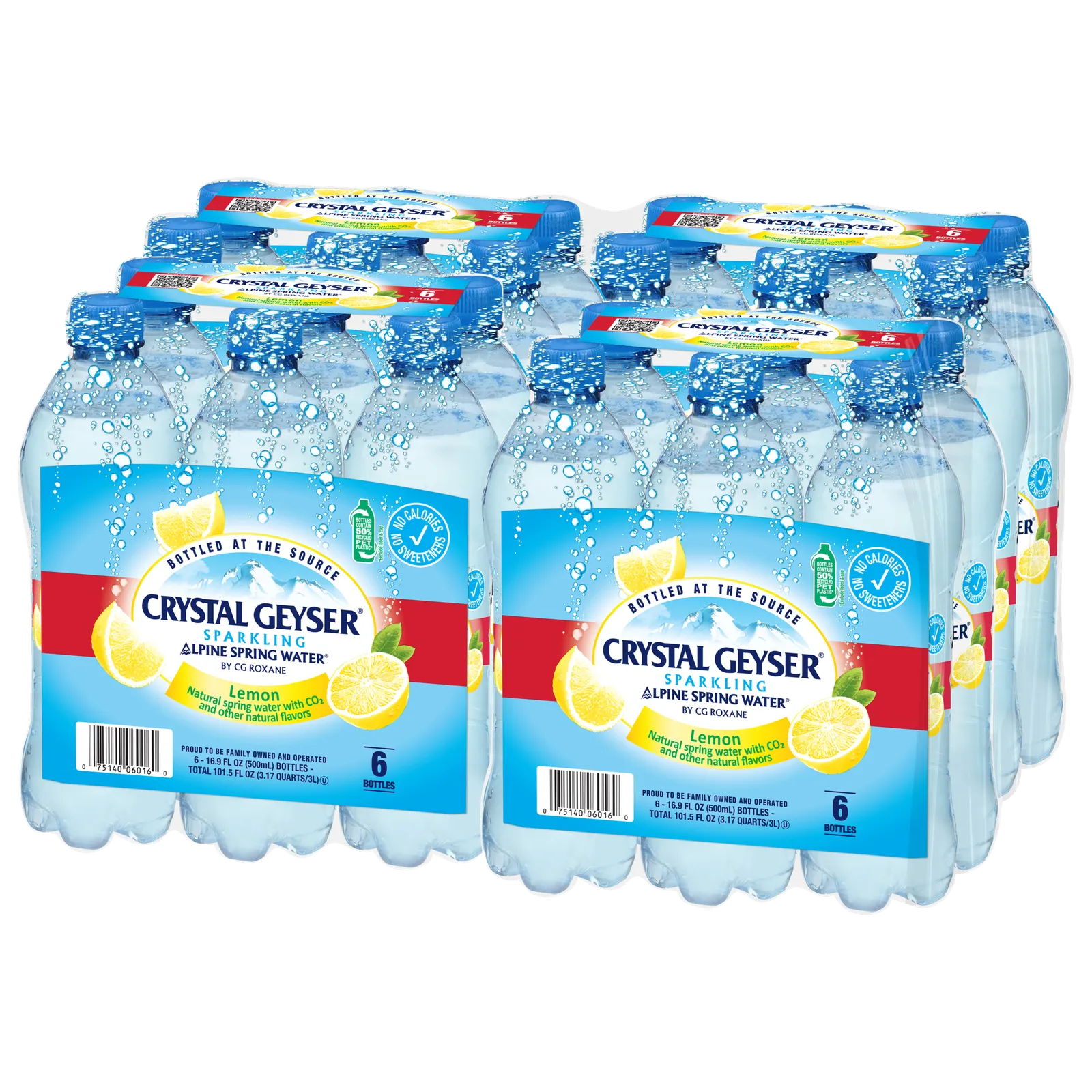
Bottled water company CG Roxane is launching its first line of Crystal Geyser sparkling waters. It’s sourced and bottled in Moultonborough, New Hampshire. The product is packaged in 16.9 fluid ounce-bottles that are with at least 50% recycled PET plastic, like the company’s existing Crystal Geyser spring water offering.
The company operates two rPET facilities in the U.S., in California and Tennessee.
Bean bag
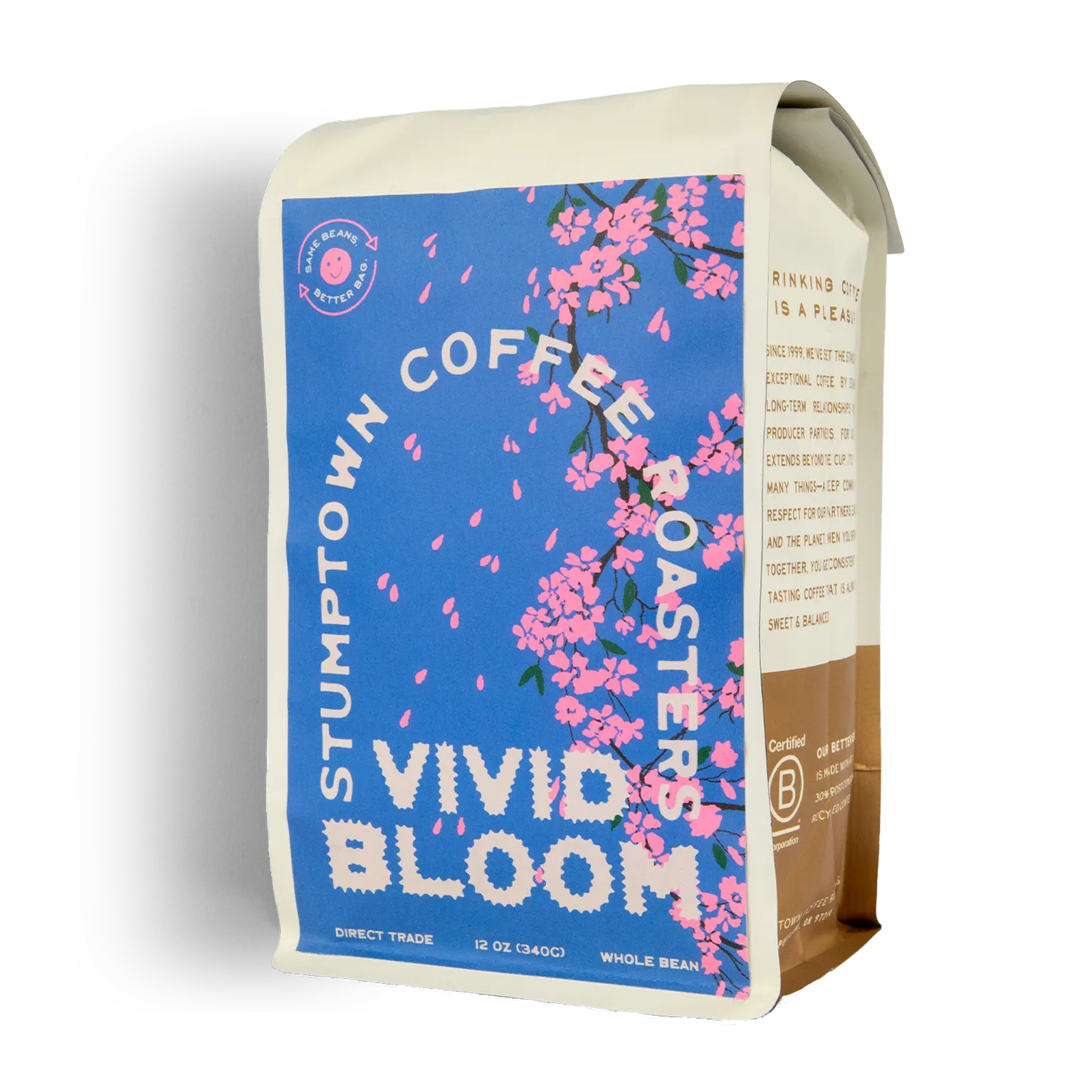
Another redesign with PCR comes from Stumptown Coffee. The lighter plastic bag for its coffee beans also incorporates at least 30% postconsumer recycled content, whereas the previous bags didn’t have any.
The bags also incorporate features to enhance freshness, said Kelly McCann, Stumptown senior manager of product and innovation, via email. The bags have reusable tape instead of the common metal ties for resealing, and they feature a stronger oxygen barrier.
The previous bag was multilayered plastic with a kraft paper outer layer, which is no longer included on the new bags. While the paper made the previous bag look recyclable, it was not, the company says. The new bag can be recycled via dedicated polyethylene collection, such as drop-off collection sites or specialty pick-up services that accept multilayer plastic bags, according to the company.
Stumptown introduced the new bags last month for its limited-release Vivid Bloom coffee. This month other varieties will begin to roll out in the new bags, with the goal to transition all the products by August, McCann said.
Sashaying away from plastic
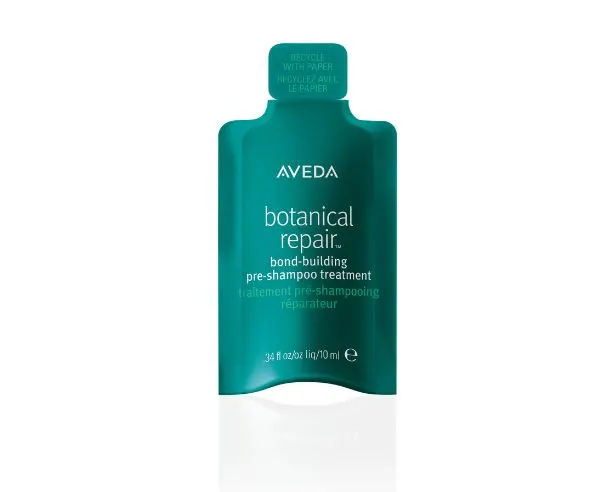
Hair and skin care brand Aveda redesigned the sachets it uses for product samples to reduce plastic and boost recyclability. The 10-milliliter packets are made from FSC-certified paper and are recyclable according to Aveda, a brand of The Estée Lauder Cos. The paper sachets are designed to reduce plastic use by at least 80% compared with the company’s 10-milliliter plastic tubes.
The beauty brand worked with Xela Pack to create the new sachets.
“Our objective was to create a material that meets the 80% threshold for reclaimable fibers while maintaining essential attributes, such as product protection, function and aesthetic appeal,” Carolynn O’Connor, director of sales at Xela Pack, said in a news release.
This redesign builds on the 2021 release of Aveda’s first paper-based sachet. While the initial release was for one hair treatment product, these sample packs will be used for other products starting later this year.
“We are proud to demonstrate that sustainability and high performance can go hand-in-hand, and it’s our hope that by integrating principles of recyclability and sustainability in packaging, we can continue to inspire meaningful change within the beauty industry,” Nicole Call, director of global packaging development at Aveda, said in a news release.
Stiff as a board
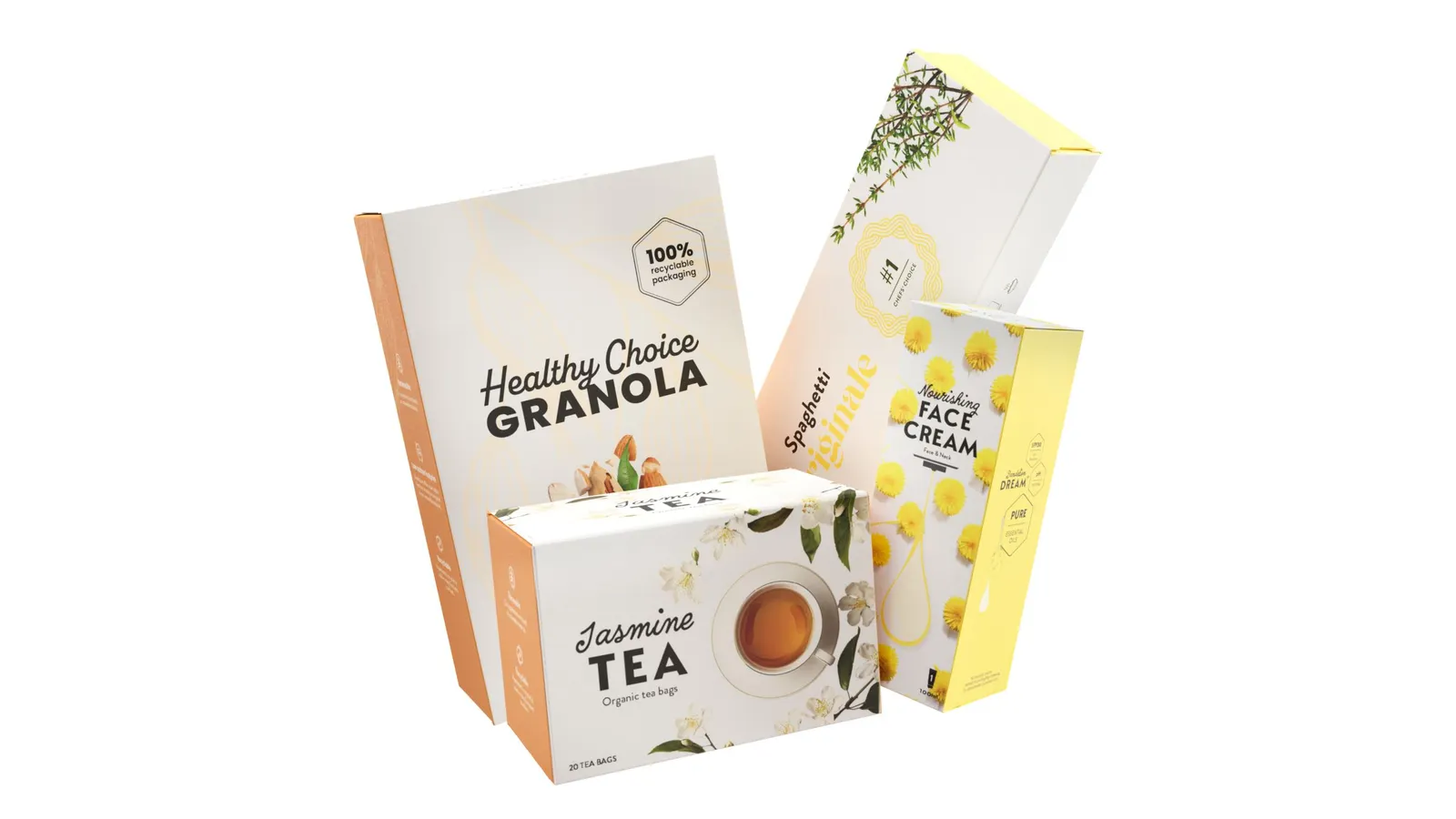
Finland-based Stora Enso introduced Performa Nova, which it calls a next-generation folding boxboard. It produces the board with its proprietary FiberLight Tec technology, which the company says results in a strong yet lightweight board.
The board’s stiffness, box compression strength and smooth surface for high-quality printing make it suitable for “demanding end uses” such as for dry, chilled and frozen foods, the company says. Performa Nova can be produced with barrier coatings.
This product launch resulted from the startup of Stora Enso’s consumer packaging board line in Oulu, Finland, in March.



